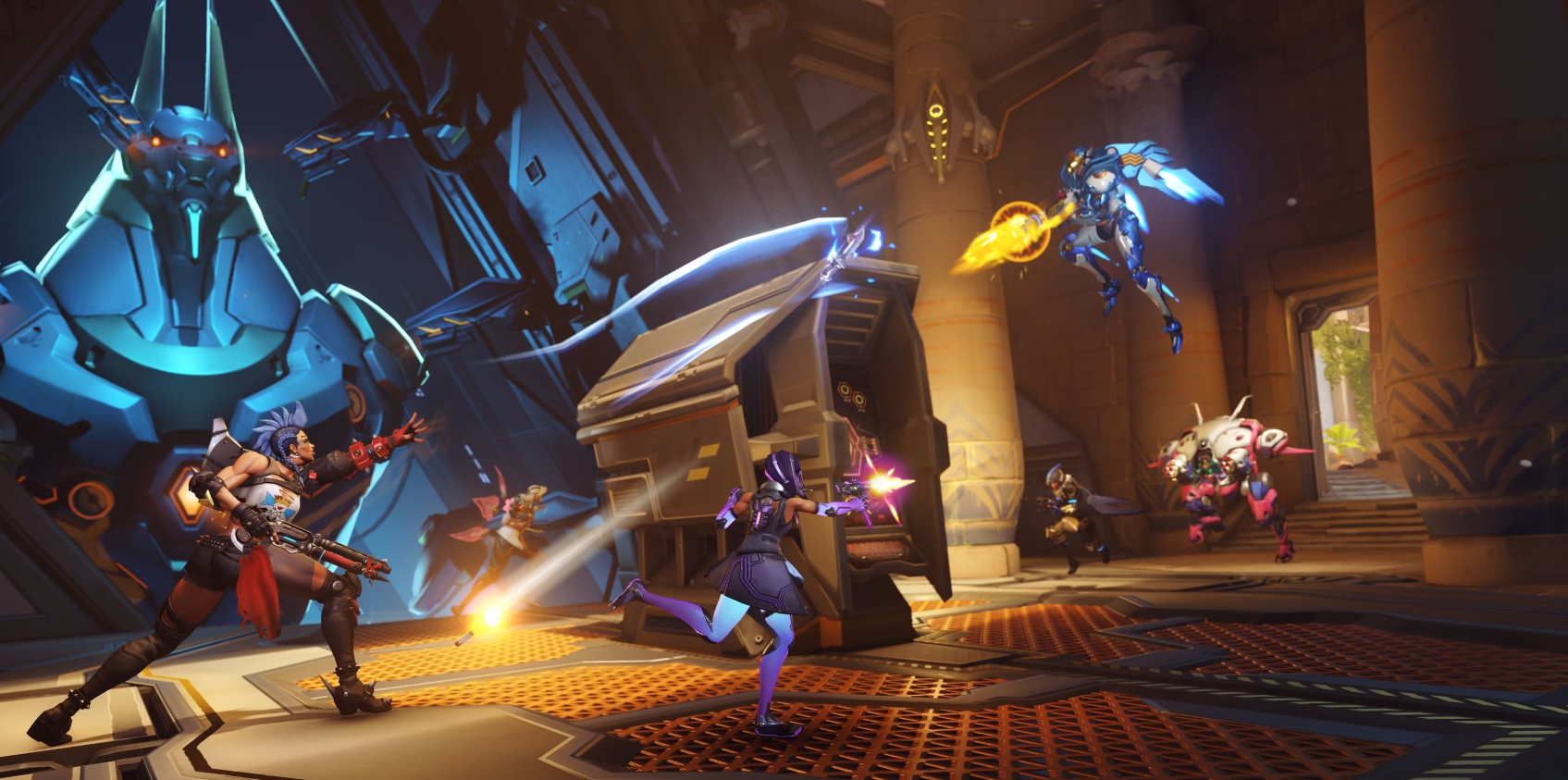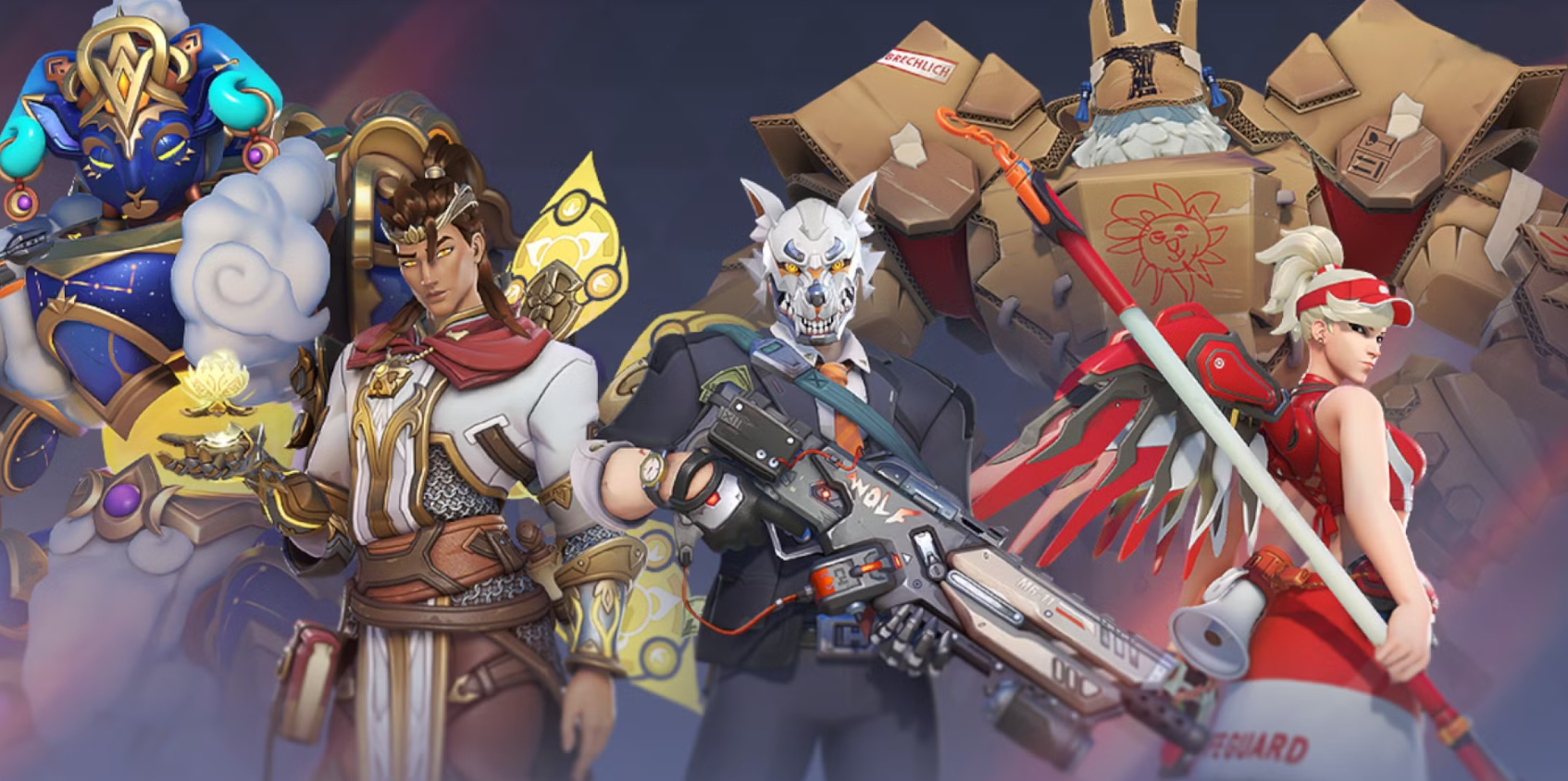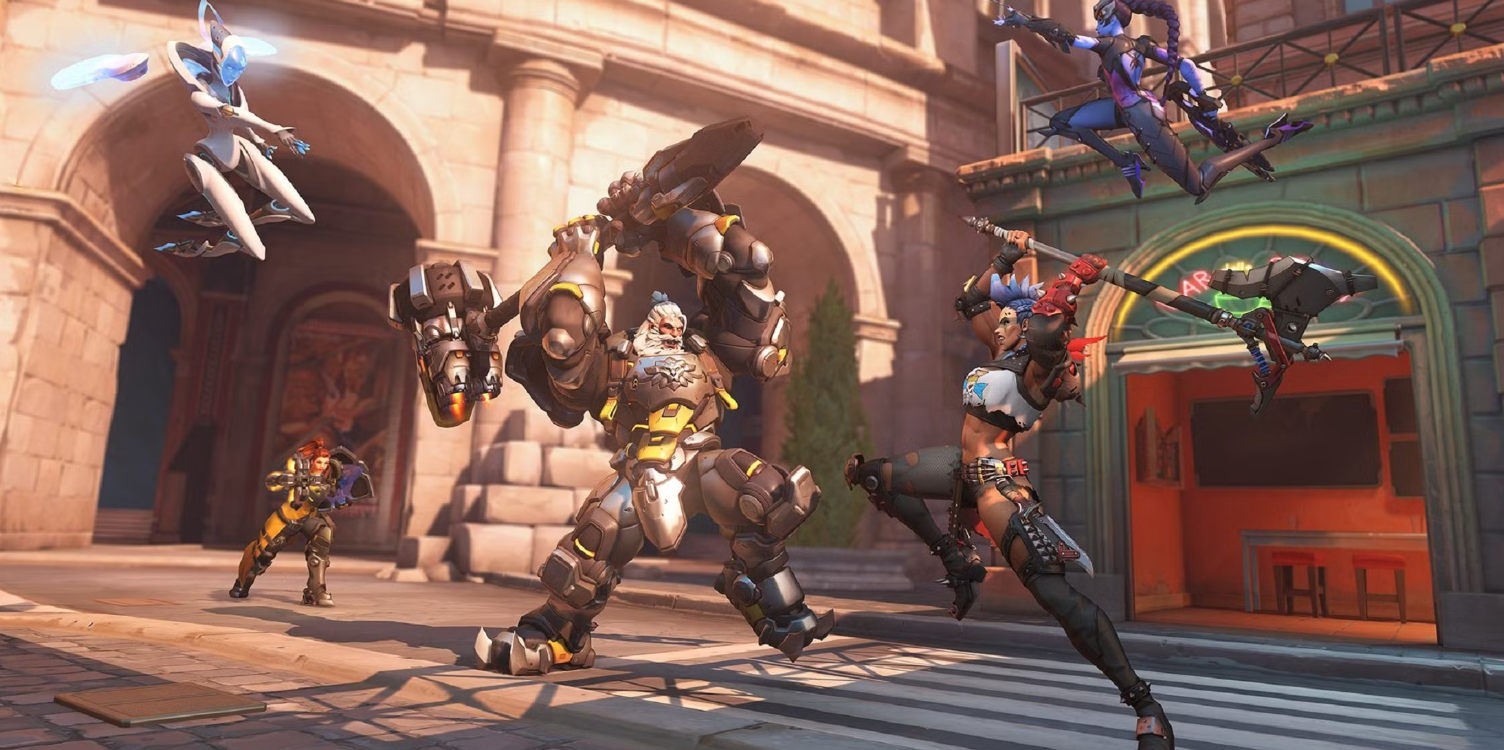Overwatch 2 Fans Disappointed by Failed Netflix Series

Blizzard was reportedly developing an Overwatch Netflix series that had fans excited for an animated exploration of the beloved game’s universe. However, this promising project was abruptly canceled due to a legal dispute that arose when Netflix poached an executive from Activision Blizzard. This unexpected move not only complicated the negotiations between the two companies but also led to significant tensions that ultimately derailed the series. The potential series was anticipated to delve into the rich lore and diverse characters of Overwatch, offering fans a deeper understanding of their favorite heroes and the world they inhabit. Many were looking forward to seeing iconic characters brought to life in a new medium, especially after the game’s success in the gaming community.
Unfortunately, the lawsuit overshadowed these creative aspirations, leaving Overwatch 2 fans disappointed and longing for a series that could have expanded the franchise’s narrative. The situation serves as a reminder of how corporate actions can impact creative projects, often leaving fans on the sidelines. As a result, the hope for a captivating animated series remains unfulfilled, and the community continues to speculate about what could have been.
Table of Contents
The Missed Opportunities for Storytelling in the Overwatch Universe
The Overwatch universe has experienced a tumultuous journey since the release of the original first-person shooter in 2016. Though the game quickly became a cultural phenomenon, celebrated for its vibrant characters and engaging multiplayer gameplay, it struggled to establish a compelling narrative medium. The stunning animated shorts released by Blizzard provided glimpses into the lore and backstories of characters like Tracer, Reaper, and Winston, but these short films were not enough to satisfy fans yearning for a more extensive exploration of the Overwatch universe. When Overwatch 2 was announced, there was renewed hope that the sequel would finally deliver a more developed narrative through its story missions. Gamers anticipated a deeper dive into the rich lore that had been built up over the years. However, as time passed, it became clear that much of the planned PvE content had been scrapped, leaving fans disappointed and still craving a more cohesive storyline.
In the midst of this void, another potential storytelling opportunity emerged. Jason Schreier, a well-known Bloomberg reporter and author of the book PLAY NICE: The Rise, Fall, and Future of Blizzard Entertainment, revealed that Blizzard had been working with Netflix to develop an Overwatch animated series. This collaboration was set to take place during the late 2010s, just before the highly anticipated release of Overwatch 2. Fans were excited at the prospect of seeing their favorite heroes brought to life in a new format, offering a chance to explore their stories in more depth. However, the excitement surrounding the project was short-lived. Progress came to a grinding halt in 2020 when Netflix poached Spencer Neumann, the former CFO of Activision Blizzard. This move led to a lawsuit that not only derailed the development of the Overwatch series but also highlighted the complexities and challenges that can arise in the entertainment industry. Legal disputes like this can have far-reaching consequences, often stifling creativity and halting projects that fans have been eagerly awaiting. The cancellation of the Overwatch series is particularly disheartening given the wealth of material available for adaptation. The game’s extensive lore, character arcs, and unique world-building offered a fertile ground for a captivating animated series.
Fans had envisioned episodes that could explore the relationships between characters, the history of the Overwatch organization, and the conflicts that have shaped the world they inhabit. The animated format would have allowed for a creative storytelling approach that could resonate with both long-time fans and newcomers alike. In addition to the missed opportunity for storytelling, the situation underscores a broader trend within the gaming and entertainment industries. As companies seek to expand their franchises and capitalize on popular intellectual properties, the intersection of video games and television becomes increasingly complex. Projects that hold great potential can easily fall victim to corporate maneuvers, leaving audiences feeling frustrated and disillusioned. Despite the setbacks, the Overwatch community remains resilient. Fans continue to engage deeply with the game, creating their own narratives and fan art to fill the gaps left by the official content. The passion and creativity of the community highlight the strong bond between the players and the characters they love. While the disappointment over the canceled series is palpable, it serves as a reminder of the importance of fan engagement and the potential for storytelling within the gaming medium.
As Blizzard looks to the future, there is still hope that the Overwatch universe can be explored in new and exciting ways. Whether through new game content, animated shorts, or even a revival of the canceled series, fans are eager to see their favorite heroes and stories come to life. The desire for a rich narrative experience remains strong, and the community’s enthusiasm may someday lead to the storytelling opportunities they have long awaited. The saga of the Overwatch universe continues to evolve, marked by both triumphs and setbacks. The potential for an Overwatch animated series represented a significant opportunity to enhance the game’s narrative depth, but corporate decisions have put those plans on hold. As fans continue to rally around the franchise, their unwavering support may eventually pave the way for future storytelling endeavors that honor the rich world that Blizzard has created. Whether through new projects or revitalized content, the hope remains that the stories of Overwatch will one day be fully realized in a way that resonates with its passionate community.
The Legal Battle and Its Impact on Overwatch Storytelling
The Variety report shared during Jason Schreier’s AMA on Reddit shed light on the legal battle between Activision Blizzard and Netflix. According to the report, Spencer Neumann was approached by Netflix in late 2018, roughly a year into his three-year contract with Activision. This occurred during a critical period when negotiations for an Overwatch animated series were underway. Neumann’s recruitment violated a “no shop” clause in his contract, which prohibited him from exploring other employment opportunities while still with Activision. As a result, Activision terminated his contract, setting off a chain of events that would have significant ramifications for multiple projects. In January 2019, Neumann officially joined Netflix as its CFO, leading Activision Blizzard to take legal action against the streaming platform. The lawsuit claimed that Netflix was in contempt of California employment laws, alleging that they had knowingly poached an executive under contract. This legal dispute not only halted the development of the Overwatch series but also affected other Blizzard properties. Schreier confirmed that the fallout from this lawsuit extended beyond Overwatch. Netflix had also been working on animated adaptations for other beloved Blizzard franchises, including StarCraft and Diablo. However, the contentious nature of the legal battle made it clear that these projects were also in jeopardy. With the bad blood resulting from Neumann’s poaching, it seems unlikely that Activision and Netflix will collaborate on any future endeavors.
The reaction from the Overwatch 2 community was one of profound disappointment. Many players felt that this was yet another setback in a series of missed opportunities for storytelling within the Overwatch universe. One fan on Twitter summed up the collective frustration, calling it “the fumble of the decade.” Another user expressed a sense of cosmic irony, stating, “It’s like the universe itself doesn’t want the story of Overwatch to be told.” For a franchise rich in lore and character development, the cancellation of the animated series is particularly disheartening. Overwatch boasts a diverse cast of heroes, each with their own unique backstories and motivations. The potential for an animated series to delve into these narratives was immense. Fans had dreamed of exploring the complexities of characters like Genji, who struggles with his identity, or Mercy, who grapples with the ethical dilemmas of her healing abilities. The possibilities for storytelling were nearly limitless.
The disappointment felt by the community is compounded by the fact that Overwatch has been positioned as not just a game, but a universe filled with stories waiting to be told. The animated shorts released over the years have been met with critical acclaim, illustrating the depth of storytelling that Blizzard can achieve. Each short has provided glimpses into the lives of the characters, their relationships, and the broader conflicts that shape the Overwatch world. The hope was that a dedicated animated series could expand on these themes, providing fans with a more comprehensive narrative experience. Despite the setbacks, the Overwatch community remains passionate and engaged. Fans frequently create their own content—fan art, fan fiction, and videos—that explore the universe and its characters. This grassroots creativity demonstrates the strong connection players have with the lore and their desire for more storytelling. Even in the absence of official narratives, the community continues to breathe life into the Overwatch universe. As Blizzard looks ahead, there is still a glimmer of hope that storytelling within the Overwatch universe could eventually find its way back into the spotlight. The company has a history of surprising its audience, whether through unexpected game updates, new character introductions, or even the revival of old projects. While the current landscape may seem bleak, fans remain hopeful that Overwatch 2 will eventually deliver the rich narrative experience they crave.
In the meantime, the community continues to engage with the game and each other. Discussions about potential story arcs and character developments fill forums and social media, highlighting the unwavering enthusiasm for the franchise. This collective passion serves as a reminder of the power of storytelling in gaming and the deep connections that players form with the characters and worlds they love. In conclusion, the saga of the Overwatch animated series is a poignant reminder of the complexities involved in bringing creative projects to life. The cancellation of the series due to corporate conflicts has left a void in the narrative landscape of Overwatch, but the passion of the community persists. Fans continue to hope for future storytelling opportunities, eagerly anticipating what Blizzard might unveil next. The potential for the Overwatch universe remains vast, and while the road ahead may be uncertain, the desire for rich, immersive storytelling in this beloved franchise endures.




